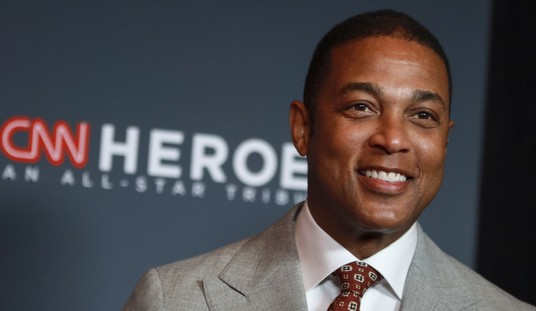There’s an interesting piece from Vox’s John B. Judis pointing out just how similar Donald Trump’s positions are with the ones of Bernie Sanders. There’s going to be a fair amount of consternation between both Trump and Sanders’ supporters, who really don’t want to be associated with each other, on this but Vox thinks there’s plenty of crossover between the two. The first is, you guessed it, populism but it goes even deeper than that:
Sanders is a left-wing populist. He wants to defend the “collapsing middle class” against the “billionaire class” that controls the economy and politics. He is not a liberal who wants to reconcile Wall Street and Main Street, or a socialist who wants the working class to abolish capitalism.
Trump is a right-wing populist who wants to defend the American people from rapacious CEOs and from Hispanic illegal immigrants. He is not a conventional business conservative who thinks government is the problem and who blames America’s ills on unions and Social Security.
Judis’ piece does go on its usual rabbit hole of blaming free markets for almost everything, and wishing the U.S. was some European-style social democracy. It’s rather eye-rolling, but when it gets into how Trump and Sanders almost agree on economics it’s quite interesting. The key factor is how the two believe government spending is the way to go:
Trump has also rejected the typical center-right view of government. He has opposed cuts to Social Security and Medicare, and he has not fretted about debt and deficits. Instead, he has advocated massive government spending on infrastructure. He attacked Obama’s health care plan for subsidizing insurance companies and drug companies, and has joined Sanders and Clinton in calling for curbing drug prices…
[ Sanders’ ] proposals, whether or not they are immediately feasible, challenge an approach that prioritizes the private market. He unblushingly favors huge government spending — $1 trillion worth — on infrastructure and would pay for that and for free public college tuition by tax hikes on speculation and the wealthy that Clinton, for one, opposes. He wants Medicare for all, which would mean eliminating private health insurers except as they might supplement government programs.
Judis also writes how this could be history repeating itself with what happened in the late 1930s with the advent of the New Deal in the U.S. and facism Europe. But it isn’t just Vox which noticed the similarities. Washington Free Beacon’s Andrew Stiles wrote last August how the two are pretty much the same on issues such as campaign finance and the Iraq War:
Campaign finance:
Sanders has repeatedly accused Republican politicians of being puppets of rich donors like the Koch brothers. So has Trump. Sanders believes that our campaign finance system must be reformed because rich individuals and corporations have too much sway in American politics. Trump not only agrees, he is a walking testament to that broken system. Trump recently explained how he was able to purchase the attendance of Bill and Hillary Clinton at his wedding in 2005, and has repeatedly bragged about how his personal wealth makes him immune to the interests of donors and special interests who might try to limit a candidate’s ability to “tell it like it is.”
Iraq war:Unlike Hillary Clinton, neither candidate voted for the Iraq war.
The two also agree on trade and, at times, on immigration. Trump and Sanders have both criticized NAFTA, with Trump calling it a “disaster” to CBS, while Sanders wrote on his website it drove down wages and causes million of Americans to lose their jobs. Trump even acknowledged a crossover vote on trade between his supporters and Sanders’ supporters. As for immigration, both candidates discuss the desire to protect the American worker by changing how H-1B visas are handed out. They do disagree on border security, with Trump wanting to do the “Trump Wall,” while Sanders wants to use more cameras, thermal images, and movement sensors. They also disagree on DACA, but this might be because Sanders wants to avoid getting into another #blacklivesmatter incident like he did in Seattle.
It’s honestly a bit amusing seeing Vox try to paint candidates like Jeb Bush, John Kasich, Ted Cruz, and Marco Rubio as fiscal hawks because they’ve all supported increased government spending in one, shape, or form (Jeb on education; Kasich on Medicare; and Cruz and Rubio on military). It’s also hilarious to see Judis claim the GOP is full of a bunch of free marketers, when this is the same GOP which signed off on the bailouts and the Farm Bill. The GOP is far from fiscally conservative and free market-based, which is why the Tea Party started in 2009. But Judis’ Vox piece is making a key point: Trump and Sanders are similar in their candidacies and Judis believes it’s a good thing! This should really cause some of the people claiming to be “small government conservatives” or “Tea Party” to stop and think a minute. Trump (and probably Sanders) supporters are obviously going to say they’re just trying to “expand the tent,” but is this really the case? Is it really smart to select someone who believes in big government, whilst trying to quasi-pass off as a “conservative”? It also harks back to a question Jim Geraghty at National Review asked last month: Do Americans really want small government? It’s still disturbing, at least for me, to see the GOP frontrunner and the candidate a lot of Democrats would like to be the frontrunner, agreeing on so many issues.







Join the conversation as a VIP Member